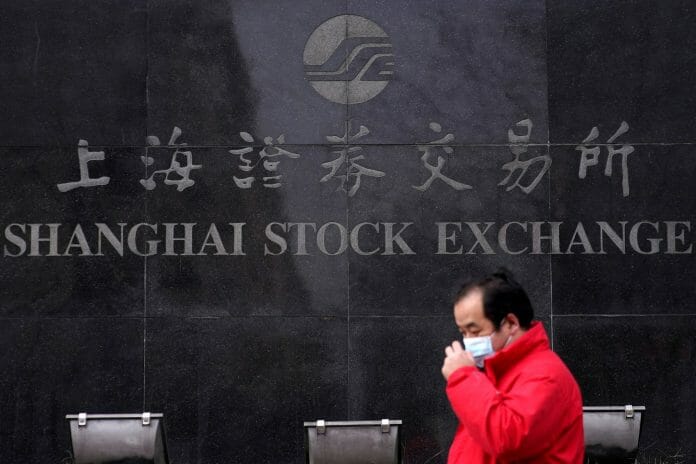Most Asian stocks fell further on Wednesday amid persistent fears of rising U.S. interest rates, while Chinese stocks rebounded on positive industrial profits data and promises of more stimulus.
Regional markets took a weak lead-in from Wall Street indexes, which sank in overnight trade as markets continued to fret over a barrage of hawkish signals from the Federal Reserve.
Rising Treasury yields were a key source of pressure on heavyweight technology stocks, while also drawing capital away from broader risk-driven assets. Fed officials said that interest rates could rise at least once more this year, and are likely to remain above 5% through 2024, Investing.com cited today (Sept 27).
Sentiment towards U.S. stocks was also battered by growing fears of a government shutdown, which analysts warn could dent already sluggish economic growth.
Japan’s Nikkei 225 was among the worst performers in Asia for the day, down 0.6%, while South Korea’s KOSPI lost 0.3%.
Australia’s ASX 200 fell 0.3% as data showed consumer inflation grew as expected in August, potentially inviting a hawkish outlook for the Reserve Bank. But optimism over China helped stem further losses in the index.
Futures for India’s Nifty 50 index pointed to a flat open, after the index fell sharply from record highs hit earlier this month. But the Nifty was among the few Asian indexes trading positive for September.
Rising U.S. interest rates bode poorly for stock markets, given that they limit global monetary conditions and also draw capital away from risk-driven assets. This trade saw most Asian markets clock steep losses over the past year.
Chinese stocks outperform on positive data, stimulus talk
But Chinese stocks were the sole outperformers in Asia on Wednesday. The Shanghai Shenzhen CSI 300 and Shanghai Composite indexes rose 0.4% and 0.3%, respectively, while Hong Kong’s Hang Seng index added 0.8%.
Data showed that Chinese industrial profits rebounded sharply in August, helping narrow their declines for the year to date. The data helped spur some optimism over a Chinese economic recovery, ahead of key purchasing managers’ index data due later this week.
Sentiment towards China was also somewhat aided by promises of more monetary stimulus from the People’s Bank of China. The PBOC said it will use step up measures to increase private investment in the country, which has struggled to reach pre-COVID highs.
Still, Chinese stocks were also down substantially for September, and were trading close to their 2023 lows, amid growing concerns over a property market meltdown in the country.
Concerns over China had also battered regional markets through September, given that the country is a major trading partner with most Asian countries.









